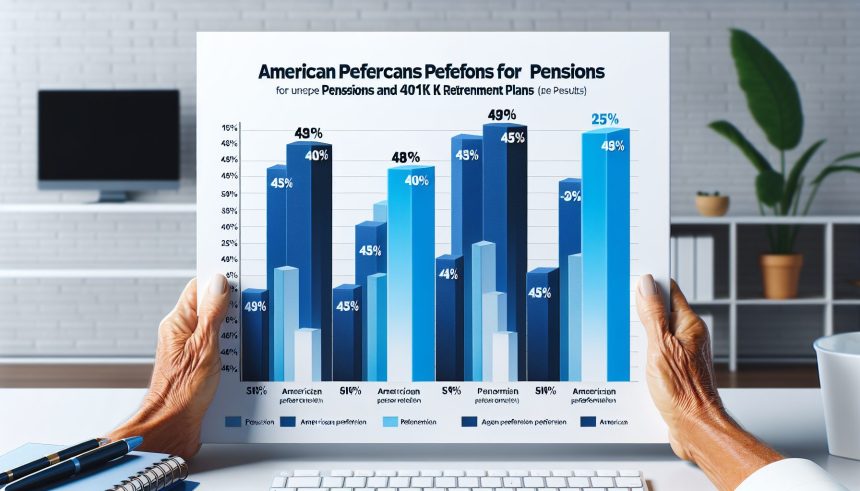A recent consumer survey indicates a dominant preference for traditional pensions over 401(k) retirement plans among Americans. The study reveals that 68% of respondents favor pensions, with key reasons being reliability and assured income. Conversely, a mere 21% favored 401(k) plans, noting their flexibility as the primary appeal.
Demographics played a role, with a majority of pro-pension respondents aged 50 and above. These statistics provide vital information for financial institutions and policymakers tasked with designing retirement benefits.
The survey encompassed diverse industries nationwide, illustrating a strong preference for the stability pensions offer. In contrast, the 401(k)’s fluctuating performance creates discomfort among workers. Pension schemes guarantee consistent income after retirement, reducing financial worries.
These findings necessitate an employer review of retirement benefits strategies, ensuring employee retention and a satisfied workforce. Job satisfaction was notably higher among individuals provided with a stable pension plan.
Pensions, also known as defined benefit plans, provide retirees with a steady retirement income based on previous salary and years worked. Their popularity stems from their reliability and the investment risk assumed by the employer. While there’s a decreasing trend in companies offering pensions due to high costs, they remain a reliable income source for many retirees.
401(k) plans – referred to as defined contribution plans – transfer the investment risk to the employee. Participants have full control over fund distribution amid varied investment options. However, market performance reliance introduces investment risk and fees associated with managing a 401(k) can impact savings growth.
Despite both strategies’ benefits, the survey reveals Americans prioritize financial security over larger potential returns. The appeal lies in pensions’ predictable nature, contrasting with 401(k)’s uncertain potential. Participants value the guaranteed income streams pensions provide against market volatility.
The popularity of pensions could stem from the complex and unpredictable nature of managing 401(k) plans. However, both options have distinct advantages, depending on individual circumstances and financial goals. A mix of various income sources usually forms a well-rounded retirement plan.
The growing trend towards pensions indicates the need for sound financial planning advice, helping individuals make informed retirement decisions. The findings underline the importance of discussions about retirees’ future security, taking into account individual preferences and requirements. With increasing life expectancy and rising healthcare costs, the demand for comprehensive retirement strategies intensifies.
As a response, collaboration between the government and private sectors should focus on formulating in-depth plans to aid retirees in securing their finances. Measures should include reinforcing social security programs, broadening annuity options, and reforming pension plans.
Understanding older adults’ retirement desires is integral. Their insights could improve policy creation and foster a more resilient retirement system. Furthermore, educating future retirees about effective financial management and suitable retirement-saving mechanisms is critical.
In conclusion, the survey highlights pressing issues within the U.S. retirement landscape, calling for swift, collaborative actions that consider every retiree’s unique predicament. Achieving retirement security requires reinventing existing policies and a cultural shift towards supporting our aging population adequately.







